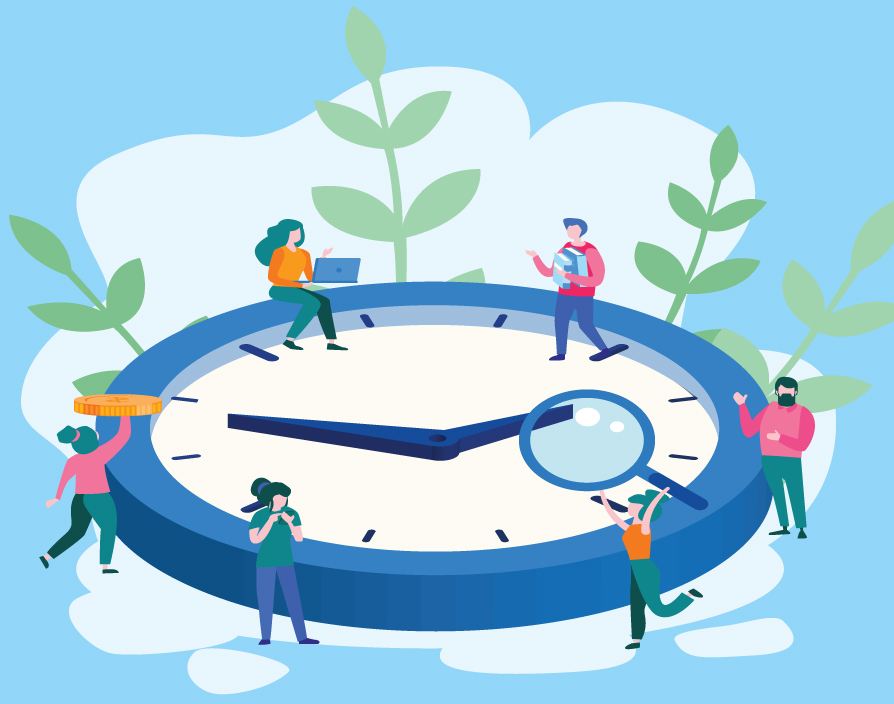I often hear people saying they don’t have enough time – it’s a common complaint. However, improving your time management skills can yield very positive results for both your personal and professional lives.
For me, effective time management is about learning how to make every day count as a main objective. However, to achieve this means making the personal decision to reduce procrastination and adding a self-disciplined approach to each day. It’s best to start with the basics. Make time for enough sleep, healthy eating and regular exercise because these are the cornerstones of managing your time.
The next step is to evaluate how you’re currently spending your time. Do you drive to work? How do you spend that time? You could be listening to audio books, podcasts or learning a language. If you go to work on public transport you could read or study language apps. Finding time to incorporate the little things you wish you have time for could create habits. Maintain these routines for 66 days and they could become a change of lifestyle.
Next, consider what’s important to you. This could be a lifestyle or business goal but ensure you’re spending time on tasks that are working towards this objective. No matter how small the steps, each one must take you closer to scoring your goal as a result.
It’s worth considering how you work most effectively. Is it during the morning or are you a night owl? I’m a morning person and know if I don’t exercise in the morning that there’s very little chance it will happen after work in the evening. I recognise my body clock and when I’m the most productive.
The next step is to think about where you must be physically to achieve the most. Do you need to squirrel yourself away somewhere quiet or can you work effectively and get things done on the dining room table?
Getting more time for yourself also includes spending less time on pointless activities. This means saying no to tasks which aren’t important and that take time and energy to complete. Finally, prioritise fun activities and make sure it’s not all work and no play by scheduling activities that bring joy into your life. If they’re not scheduled, they won’t happen.
By taking control of your time, you can find moments to learn new skills, do things that excite and energise you and secure a fresh outlook.”

Sussanne Chambers
Having successfully launched HomeXperts in 2009 and turned the business into a franchising power house in the years since, it's safe to say that Sussanne Chambers has oodles of valuable experience. Thankfully, she's kindly gracing these hallowed pages with insight and advice on how franchisors and franchisees alike can improve their business.

Sussanne Chambers
Having successfully launched HomeXperts in 2009 and turned the business into a franchising power house in the years since, it's safe to say that Sussanne Chambers has oodles of valuable experience. Thankfully, she's kindly gracing these hallowed pages with insight and advice on how franchisors and franchisees alike can improve their business.


































